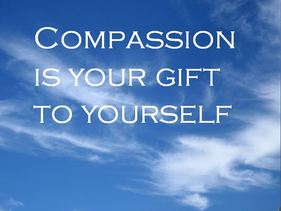
Acceptance and Commitment Therapy (ACT), with its core principle of acceptance, has much to offer those who are suffering from a chronic health condition (see this article). One of the core skills used in ACT to help you step out of the negative spiral of dirty distress and shift your attention to meaningful activity is “Mindfulness”. In this article, I will explain how mindfulness is used with compassion to manage negative thoughts, feelings and emotions so that they do not stop you living a life you value.
Mindfulness
While mindfulness has been a part of the Buddhist tradition for over two and a half thousand years, it was only brought to the world of psychotherapy in 1979 by an American medical professor and author - Jon Kabat-Zinn. He integrated mindfulness into a treatment program (Mindfulness Based Stress Reduction) to successfully help people manage chronic intractable pain.
Kabat-Zinn defined mindfulness as “paying attention, on purpose, in the present moment and without judgment.” So, it is a form of meditation that cultivates focused attention on present moment experiences with full acceptance of whatever arises – including awareness of pain. The power of mindfulness is now being realised as more and more studies are finding evidence supporting the effectiveness of mindfulness to help people cope with anxiety, pain, depression, and chronic illness. Scientific research has also found that regular mindfulness practice can enhance immune functioning, decrease reactivity to stress and increase positive states of mind.
Mindfulness
While mindfulness has been a part of the Buddhist tradition for over two and a half thousand years, it was only brought to the world of psychotherapy in 1979 by an American medical professor and author - Jon Kabat-Zinn. He integrated mindfulness into a treatment program (Mindfulness Based Stress Reduction) to successfully help people manage chronic intractable pain.
Kabat-Zinn defined mindfulness as “paying attention, on purpose, in the present moment and without judgment.” So, it is a form of meditation that cultivates focused attention on present moment experiences with full acceptance of whatever arises – including awareness of pain. The power of mindfulness is now being realised as more and more studies are finding evidence supporting the effectiveness of mindfulness to help people cope with anxiety, pain, depression, and chronic illness. Scientific research has also found that regular mindfulness practice can enhance immune functioning, decrease reactivity to stress and increase positive states of mind.

Self-Compassion
One of the more powerful recent developments in therapy for me over the last decade has been Compassion Focused Therapy (CFT), developed by an English psychology professor – Paul Gilbert. Professor Gilbert has highlighted that we are often harshly critical of ourselves for things that are not in our control, in a world that is very challenging with a mind that is often chaotic and easily triggered into distress.
CFT aims to help you cultivate a compassionate resource within yourself to help you manage these realities. Although it has gathered momentum over the last decade, developing compassion for ourselves and others has its roots in the Buddhist teachings, as found in Loving Kindness meditations. Loving kindness practices are now being integrated into psychotherapy because of their power to transform suffering.
One of the more powerful recent developments in therapy for me over the last decade has been Compassion Focused Therapy (CFT), developed by an English psychology professor – Paul Gilbert. Professor Gilbert has highlighted that we are often harshly critical of ourselves for things that are not in our control, in a world that is very challenging with a mind that is often chaotic and easily triggered into distress.
CFT aims to help you cultivate a compassionate resource within yourself to help you manage these realities. Although it has gathered momentum over the last decade, developing compassion for ourselves and others has its roots in the Buddhist teachings, as found in Loving Kindness meditations. Loving kindness practices are now being integrated into psychotherapy because of their power to transform suffering.

Chronic Health Conditions and Grieving
When managing chronic health issues, it is helpful to be aware of the stages of grief outlined by psychiatrist Elizabeth Kübler-Ross. While she identified these stages in her work with people suffering from a terminal illness, they were later found to be just as relevant for those grieving for the loss of health in a chronic illness. You may have observed in yourself the Denial (“maybe they got it wrong, maybe it will go away”); Bargaining (“maybe I can fix it with this vitamin or that alternative approach”), Anger (“why do I have to have this ...it’s not fair”); Depression (I can’t do X, Y or Z anymore) and finally Acceptance (“It is what it is. I can make room for this, and live a full life around it”).
However, it is important to keep in mind that these stages are not just moved through sequentially and in this order – it is a back and forth movement and the feelings may arise at any time and in any order. Also, as grief is a very personal experience, not everyone experiences all the stages, and each stage can last for minutes to months to years, depending on the individual.
What makes grieving even more difficult is that your ailment may also be progressive, or have additional associated health conditions that may appear further down the track. Consequently, just when you think you have accommodated this illness, the goal posts are moved and there is more you have to find a way to live with. And there you are feeling angry or denying or bargaining again.
When managing chronic health issues, it is helpful to be aware of the stages of grief outlined by psychiatrist Elizabeth Kübler-Ross. While she identified these stages in her work with people suffering from a terminal illness, they were later found to be just as relevant for those grieving for the loss of health in a chronic illness. You may have observed in yourself the Denial (“maybe they got it wrong, maybe it will go away”); Bargaining (“maybe I can fix it with this vitamin or that alternative approach”), Anger (“why do I have to have this ...it’s not fair”); Depression (I can’t do X, Y or Z anymore) and finally Acceptance (“It is what it is. I can make room for this, and live a full life around it”).
However, it is important to keep in mind that these stages are not just moved through sequentially and in this order – it is a back and forth movement and the feelings may arise at any time and in any order. Also, as grief is a very personal experience, not everyone experiences all the stages, and each stage can last for minutes to months to years, depending on the individual.
What makes grieving even more difficult is that your ailment may also be progressive, or have additional associated health conditions that may appear further down the track. Consequently, just when you think you have accommodated this illness, the goal posts are moved and there is more you have to find a way to live with. And there you are feeling angry or denying or bargaining again.

Use Self-compassion to Step Back from the Struggle
As mentioned in a previous article, when managing a chronic illness it is very common to find yourself struggling to “get rid of” it or to control it, which only makes matters worse. Knowing that grieving is a normal process of coming to terms with a chronic illness will help you to step back from it and notice the struggle, rather than stay in the struggle. Mindfulness can also assist you with disengaging from the struggle and having compassion for yourself in this process is vital.
This may be most relevant when you find yourself feeling angry and frustrated about your medical condition and your inability to control it. As I have said, anger is part of the normal grieving process in the face of losing health and managing limitations you are confronted with. However, as there are no suitable external targets for this anger, you may turn this anger inwards, feeling angry at yourself, or your body, for letting you down or creating this illness. You may be criticising yourself for not being able to do more or cope better.
As mentioned in a previous article, when managing a chronic illness it is very common to find yourself struggling to “get rid of” it or to control it, which only makes matters worse. Knowing that grieving is a normal process of coming to terms with a chronic illness will help you to step back from it and notice the struggle, rather than stay in the struggle. Mindfulness can also assist you with disengaging from the struggle and having compassion for yourself in this process is vital.
This may be most relevant when you find yourself feeling angry and frustrated about your medical condition and your inability to control it. As I have said, anger is part of the normal grieving process in the face of losing health and managing limitations you are confronted with. However, as there are no suitable external targets for this anger, you may turn this anger inwards, feeling angry at yourself, or your body, for letting you down or creating this illness. You may be criticising yourself for not being able to do more or cope better.

This is where Compassion Focused Therapy (CFT) can be invaluable. Instead of blaming yourself, CFT helps you to cultivate a “compassionate-self” by imagining what you would say to a dear friend if you wanted to be compassionate and caring towards them. Connecting to this compassionate-self can turn on the areas in your brain associated with self-soothing instead of self-criticism. The self-soothing system in your brain can be activated by speaking to yourself in a kind inner voice with caring words and using a loving facial expression with some gentle touching or patting of your face or body (our brains are intrinsically wired to be soothed by these actions).
This compassionate-self would be like a caring buddy who can be with you 24/7 to support you at difficult times. A part of you that is committed to your well being and has the wisdom to know and remind you that this is not your fault, and you are doing the best you can in a life that can be very challenging.
Just imagine for a moment, what it would be like to go through life with a reliable, compassionate and caring companion by your side. That is exactly what CFT offers you. We are all told that you cannot be truly loved until you learn to love yourself. In the same way, I would say you cannot truly come to terms with a chronic illness until you learn to develop compassion – truly, deeply – for yourself.
This compassionate-self would be like a caring buddy who can be with you 24/7 to support you at difficult times. A part of you that is committed to your well being and has the wisdom to know and remind you that this is not your fault, and you are doing the best you can in a life that can be very challenging.
Just imagine for a moment, what it would be like to go through life with a reliable, compassionate and caring companion by your side. That is exactly what CFT offers you. We are all told that you cannot be truly loved until you learn to love yourself. In the same way, I would say you cannot truly come to terms with a chronic illness until you learn to develop compassion – truly, deeply – for yourself.

Appreciate what you can do
Another key to managing a chronic health condition is being mindful and appreciative of want you can do, rather than focusing on what you can’t do. So, after kindly acknowledging the difficulties you are dealing with, this compassionate-self could also help you to shift your focus away from what you can’t do, to appreciating your body and the millions of things that you are still able to do. Bringing an attitude of gratitude to your daily life, and ‘counting your blessings’ in the midst of your limitations will help you through.
This does not mean that you shut out your grief. You still need to allow some time to feel the loss and anger and shed some tears. But then you will be more able to shift your focus and re-engage with the present and do something that you find meaningful or pleasurable.
Another key to managing a chronic health condition is being mindful and appreciative of want you can do, rather than focusing on what you can’t do. So, after kindly acknowledging the difficulties you are dealing with, this compassionate-self could also help you to shift your focus away from what you can’t do, to appreciating your body and the millions of things that you are still able to do. Bringing an attitude of gratitude to your daily life, and ‘counting your blessings’ in the midst of your limitations will help you through.
This does not mean that you shut out your grief. You still need to allow some time to feel the loss and anger and shed some tears. But then you will be more able to shift your focus and re-engage with the present and do something that you find meaningful or pleasurable.

I remember once being on a beautiful beach in the Whitsundays, but being unable to walk along it as I had an episode of plantar fasciitis (a painful foot condition). It was such a beautiful cloudless sunny afternoon that I did not want to miss out. So I got down on my knees and crawled along the beach and found the most beautiful tiny shells hidden amongst the washed up seaweed that I would never have seen otherwise. I was able to fully focus (mindfully) on the sand and shoreline, enjoying the colours, and textures, and really savoured this moment in time. I collected the shells in a bag which I keep in my office to remind me of being mindful of the small positive joys that may otherwise be overlooked in the midst of limitations and distress.

Mindfulness, Self-Compassion and Pain
Mindfulness can be used in one of two ways to manage pain or other unpleasant body sensations. Initially you may use it to assist with moving your attention away from the feeling onto more rewarding aspects of your present moment. Using your senses, you may shift your focus from the disagreeable sensations and worries, to more pleasant sensual experiences like tasty food, enthralling music, the smell of a flower, feeling a hug, stroking a pet, or looking at a beautiful sunset. You may also shift your attention to think about what you value and decide how you want to act in the present moment with the discomfort.
With more advanced practice in mindfulness and self-compassion, you will be able to observe your unpleasant sensations with curiosity and kindness. Subsequently, you will notice any thoughts, sensations and emotions as they arise, without trying to change them or condemn them. Rather, you will have the capacity to sit with them, describe them as they are in this present moment, and watch them come and go with compassion for yourself. Repeated practice will enable you to become more open to them and to give up the struggle and judgements that would make them worse.
To allow you to experience this with some guidance, I invite you to go to this website where you will find a range of free downloadable Loving Kindness meditations. One of my favourite meditations is the one by Mary Brantley (under Additional Guided Meditations) and is called Lovingkindness for the Body. This meditation is particularly soothing as it combines mindfulness with an attitude of gratitude and loving kindness.
Mindfulness can be used in one of two ways to manage pain or other unpleasant body sensations. Initially you may use it to assist with moving your attention away from the feeling onto more rewarding aspects of your present moment. Using your senses, you may shift your focus from the disagreeable sensations and worries, to more pleasant sensual experiences like tasty food, enthralling music, the smell of a flower, feeling a hug, stroking a pet, or looking at a beautiful sunset. You may also shift your attention to think about what you value and decide how you want to act in the present moment with the discomfort.
With more advanced practice in mindfulness and self-compassion, you will be able to observe your unpleasant sensations with curiosity and kindness. Subsequently, you will notice any thoughts, sensations and emotions as they arise, without trying to change them or condemn them. Rather, you will have the capacity to sit with them, describe them as they are in this present moment, and watch them come and go with compassion for yourself. Repeated practice will enable you to become more open to them and to give up the struggle and judgements that would make them worse.
To allow you to experience this with some guidance, I invite you to go to this website where you will find a range of free downloadable Loving Kindness meditations. One of my favourite meditations is the one by Mary Brantley (under Additional Guided Meditations) and is called Lovingkindness for the Body. This meditation is particularly soothing as it combines mindfulness with an attitude of gratitude and loving kindness.

Changing your Brain
Psychologists have long known that what you pay attention to will change the way you experience your environment. Recent studies have revealed that what you focus your attention on repeatedly over time can also ultimately make long lasting changes in brain pathways and structures. Just like building and maintaining muscle strength can be done with repeated weight lifting, repeated activation of certain brain pathways will create, strengthen and maintain them. Thus, regular self-compassion and mindfulness meditation will make changes in your brain. This will mean that what was initially a state of mindful awareness, acceptance and self-compassion, can become more of an enduring way of relating to yourself.
Again, it is similar to training with weights so that you can play a sport better. While you may not notice the benefits at the time (and it may even feel tedious), it is when you are out on the playing field later that you appreciate the time you have put into training to build up that strength. Thus, I encourage you to put the time into a regular mindfulness and self-compassion practice (even if it is just a few minutes each day pausing to observe your breath and then wishing yourself well). If you put the time into developing this part of your brain, you will then have access to a resource that will allow you to maintain a degree of equanimity in the face of flare-ups and all the other challenges that come with chronic health conditions.
Psychologists have long known that what you pay attention to will change the way you experience your environment. Recent studies have revealed that what you focus your attention on repeatedly over time can also ultimately make long lasting changes in brain pathways and structures. Just like building and maintaining muscle strength can be done with repeated weight lifting, repeated activation of certain brain pathways will create, strengthen and maintain them. Thus, regular self-compassion and mindfulness meditation will make changes in your brain. This will mean that what was initially a state of mindful awareness, acceptance and self-compassion, can become more of an enduring way of relating to yourself.
Again, it is similar to training with weights so that you can play a sport better. While you may not notice the benefits at the time (and it may even feel tedious), it is when you are out on the playing field later that you appreciate the time you have put into training to build up that strength. Thus, I encourage you to put the time into a regular mindfulness and self-compassion practice (even if it is just a few minutes each day pausing to observe your breath and then wishing yourself well). If you put the time into developing this part of your brain, you will then have access to a resource that will allow you to maintain a degree of equanimity in the face of flare-ups and all the other challenges that come with chronic health conditions.

 RSS Feed
RSS Feed